Introduction
Yes, dogs can eat roast beef. However, there are some important caveats and safety precautions. For example, the roast beef needs to be prepared in a dog-friendly way and served occasionally and in small amounts.
Just because we are talking about meat and dogs are carnivores, it does not mean they can enjoy it without limits. Beef is a natural food option for dogs, but roasted beef is not. Therefore, moderation is the key.
Why is Roast Beef Good for Dogs?
As obligate carnivores, dogs need meat and meat-based proteins to thrive. Beef ranks high on the canine food pyramid and is loaded with health-boosting nutrients. Let’s take a closer look at the reasons roast beef is good for dogs.
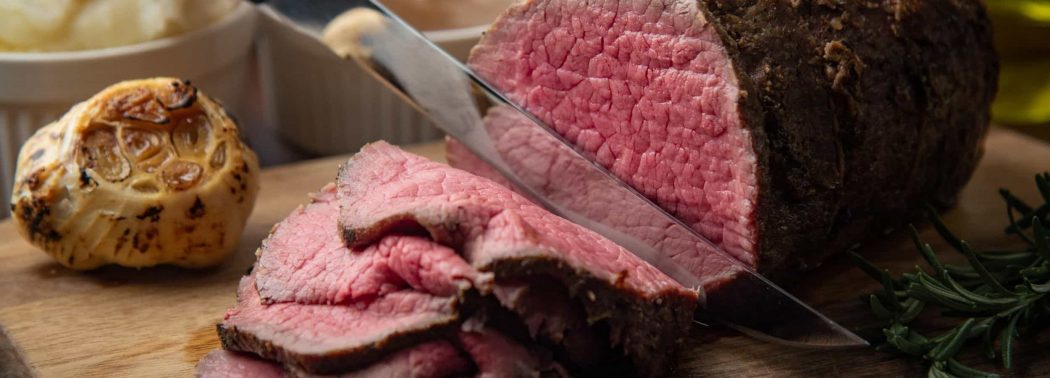
Lean Protein Source
Beef is a lean meat rich in proteins. Dogs need ample amounts of protein for energy and normal body functioning. Plus, being lean, beef meat does not contribute to weight gain.
Mineral Powerhouse
Beef is rich in several important minerals, including zinc, phosphorus, selenium, and iron. These minerals are important for normal growth, metabolism, and various body functions.
B-Complex Vitamins
Beef contains various vitamins, but it is particularly rich in hydro-soluble vitamins from the B complex. The top three most concentrated B vitamins in beef meat are B3 (niacin), B6 (pyridoxine), and B12 (cobalamin).
Rich in Carnosine
Carnosine is a dipeptide molecule made of two important amino acids – beta-alanine and histidine. Carnosine is a strong antioxidant and has several benefits. It supports healthy aging and helps manage diabetes and its complications.
Can Roast Beef be Bad for Dogs?
With so many health benefits, why not make roast beef a staple and feed it to your dog every day? Well, too much meat is not always a good idea, even when talking about carnivores.
While the beef meat itself is not troublesome, the preparation method is. Roast beef is a processed food and, if used irresponsibly, can be hazardous for the dog’s health. Here are the reasons why roast beef should not be fed excessively.
Gastrointestinal Upset
Same as all processed human foods, roast beef can wreak havoc on the dog’s digestive system leading to vomiting, diarrhea, appetite loss, dehydration, abdominal pain, and lethargy. Milder cases of stomach upset can be resolved at home, while more severe cases require veterinary attention.
High-Fat Content
Although the beef meat itself is lean, roasting includes the addition of fats and oils. Therefore, eating too much greasy roast beef can trigger an acute pancreatitis episode. If left untreated, pancreatitis can be fatal.
Onion and Garlic Poisoning
Almost all roast beef recipes include onion and garlic powders. They are both toxic to dogs. Garlic and onion both contain compounds that damage erythrocytes (red blood cells), leading to potentially life-threatening anemia.
Beef Allergies
In a myth-debunking study involving 278 dogs with food allergies, beef was the most common allergen, responsible for a whopping 95 of the cases. Beef ranked higher than most notorious allergens like dairy, wheat, and soy. Therefore, beef allergies are something you should consider before giving your dog roast beef.
How Much Roast Beef Can my Dog Eat?
Roast beef is not an everyday food and definitely not a staple. Therefore, it can only be used as an occasional treat and in small serving portions of several bite-sized chunks. In terms of frequency, once a week or every two weeks is enough.
Because of the high risk of beef allergies, it is advisable to start with a one bite-sized chunk and see how your dog tolerates the new food. On the other hand, if you have a puppy, it is best to avoid roast beef as the fat content can be too much for its sensitive tummy.
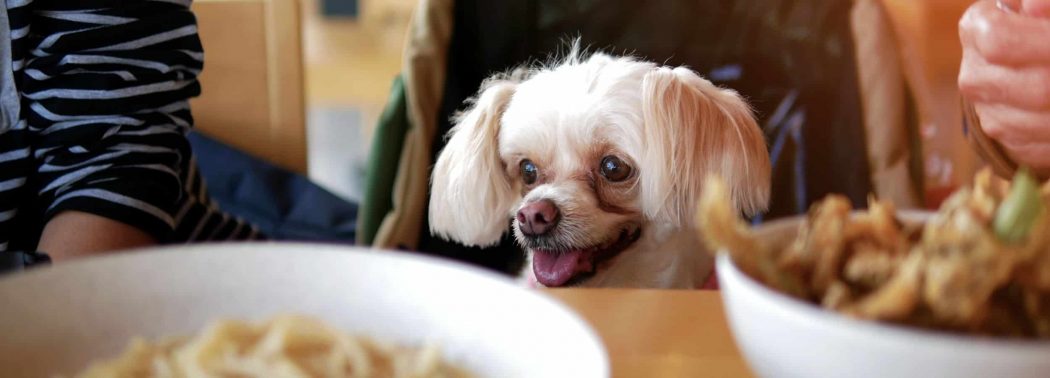
How to Prepare and Serve Roast Beef for Your Dog?
To prepare and serve roast beef for your dog, you need to start by shopping. It is highly advisable to choose lean cuts of beef (they are healthier and more affordable). Based on the USDA guidelines, lean beef options include sirloin tip side steak, the eye of the round roast and steak, top round roast and steak, and bottom round roast and steak.
Whenever possible, you should opt for organic beef – from grass-fed, free-range cattle. Namely, when buying the meat, consider its overall quality. If it is something you would eat, it means it is safe for your dog too.
Once you have the beef at home, you need to prepare it properly. In this case, we mean roast it plain – no spices and no seasonings. You can only add a small amount of salt and some dog-friendly herbs such as dill. To make the roast beef healthier, use olive or coconut oil instead of the traditional sunflower oil.
After the roast beef is ready, let it cool down before serving. You can offer the roast beef piece chopped into smaller chunks and in the form of treats or mix it with rice in the form of a complete meal.
Summary
All in all, roast beef makes an excellent occasional treat for dogs. However, the emphasis is on the word treat, meaning it should not comprise more than 10% of the dog’s daily food intake.
Plus, it needs to be served on infrequent occasions and prepared in a dog-friendly manner (free from spices, seasonings, and other stomach-upsetting ingredients). Also, keep in mind that beef allergies are common in dogs.
Sources
- Cuts of beef: A guide to the leanest selections, Mayo Clinic Staff, 2021
- Food Allergy Myths, Dr. Jennifer Coates, 2011
- B-Complex Vitamins for Dogs, Emily Gantt, 2021
- What Are Lean Proteins and How They Can Help Your Pet, PetMD Editorial, 2012
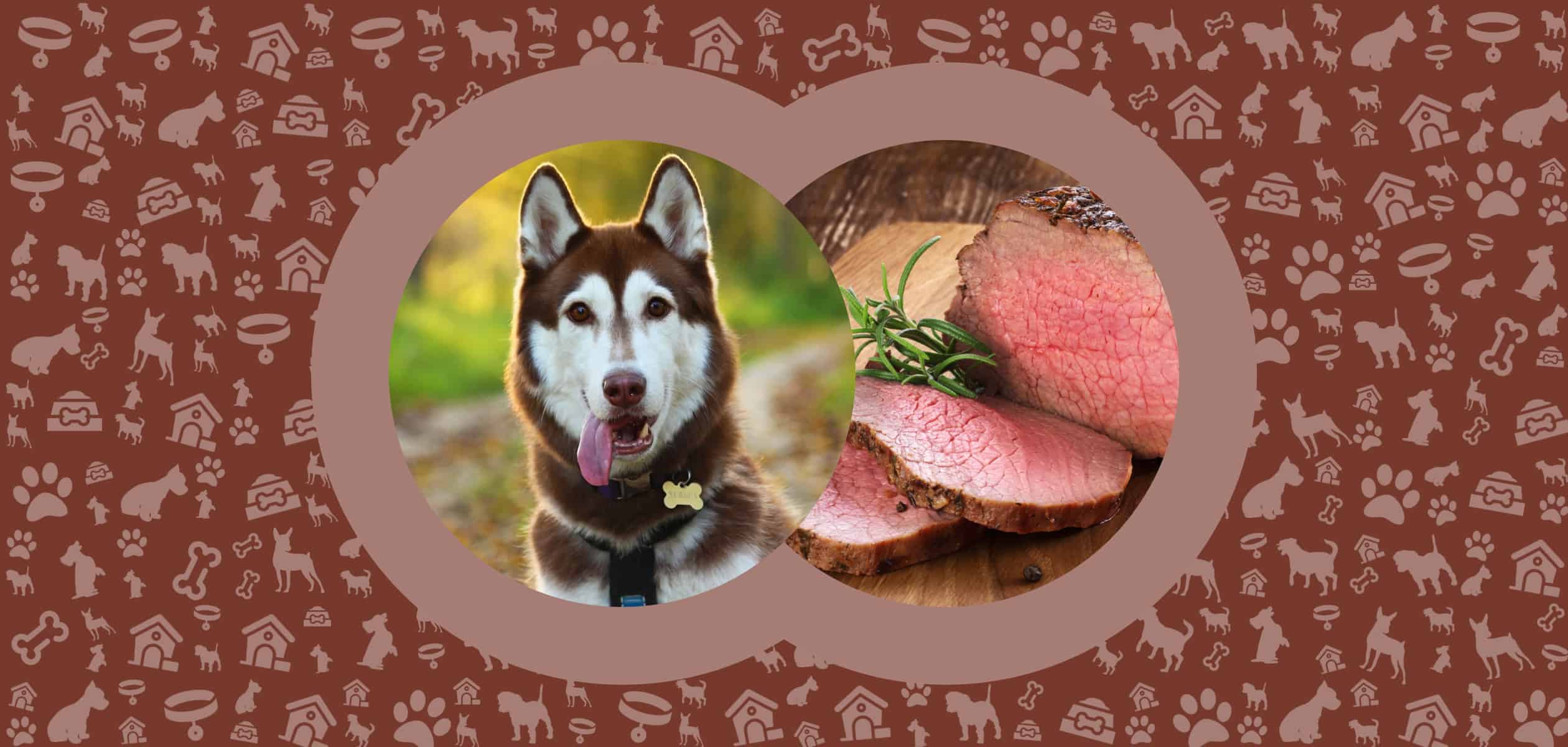
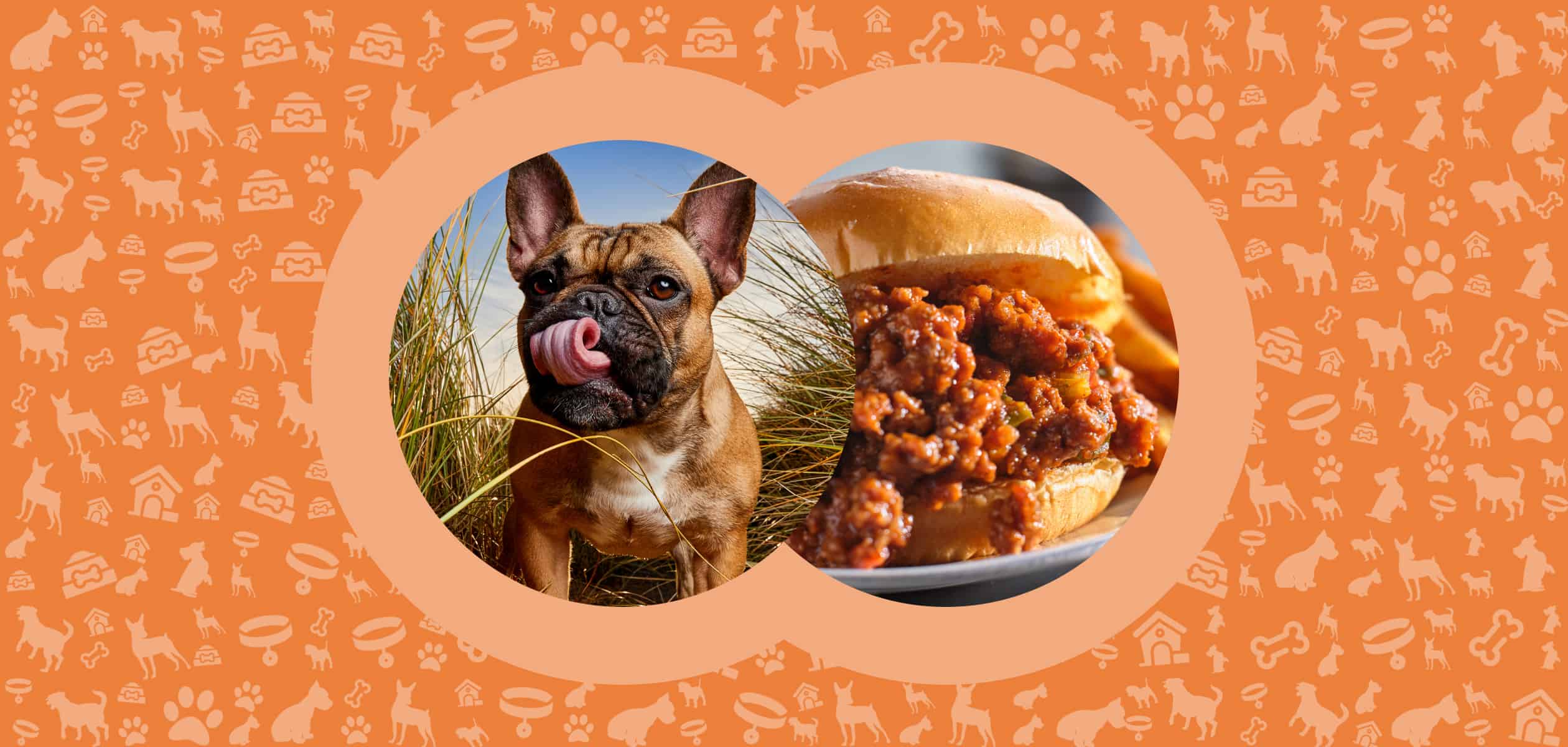
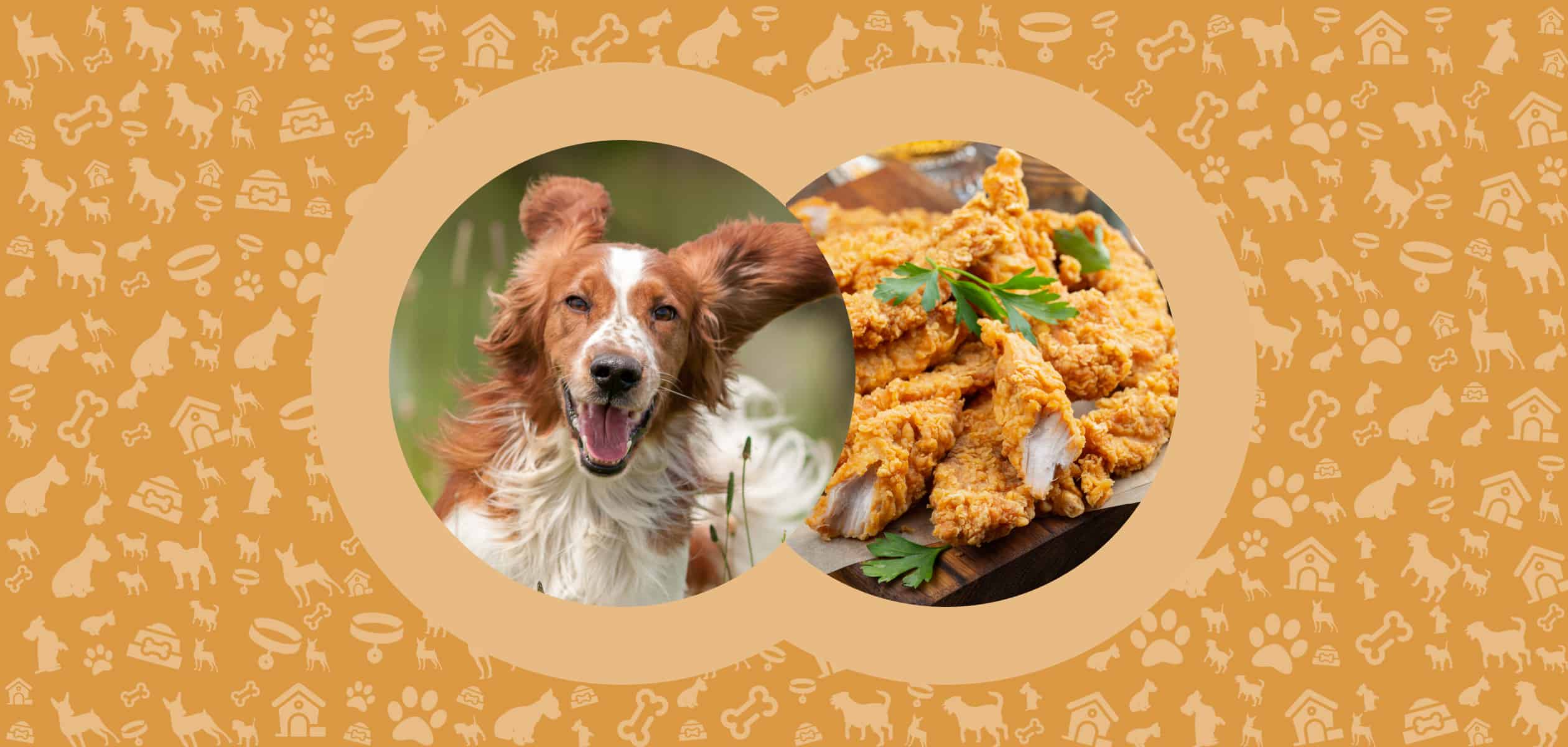
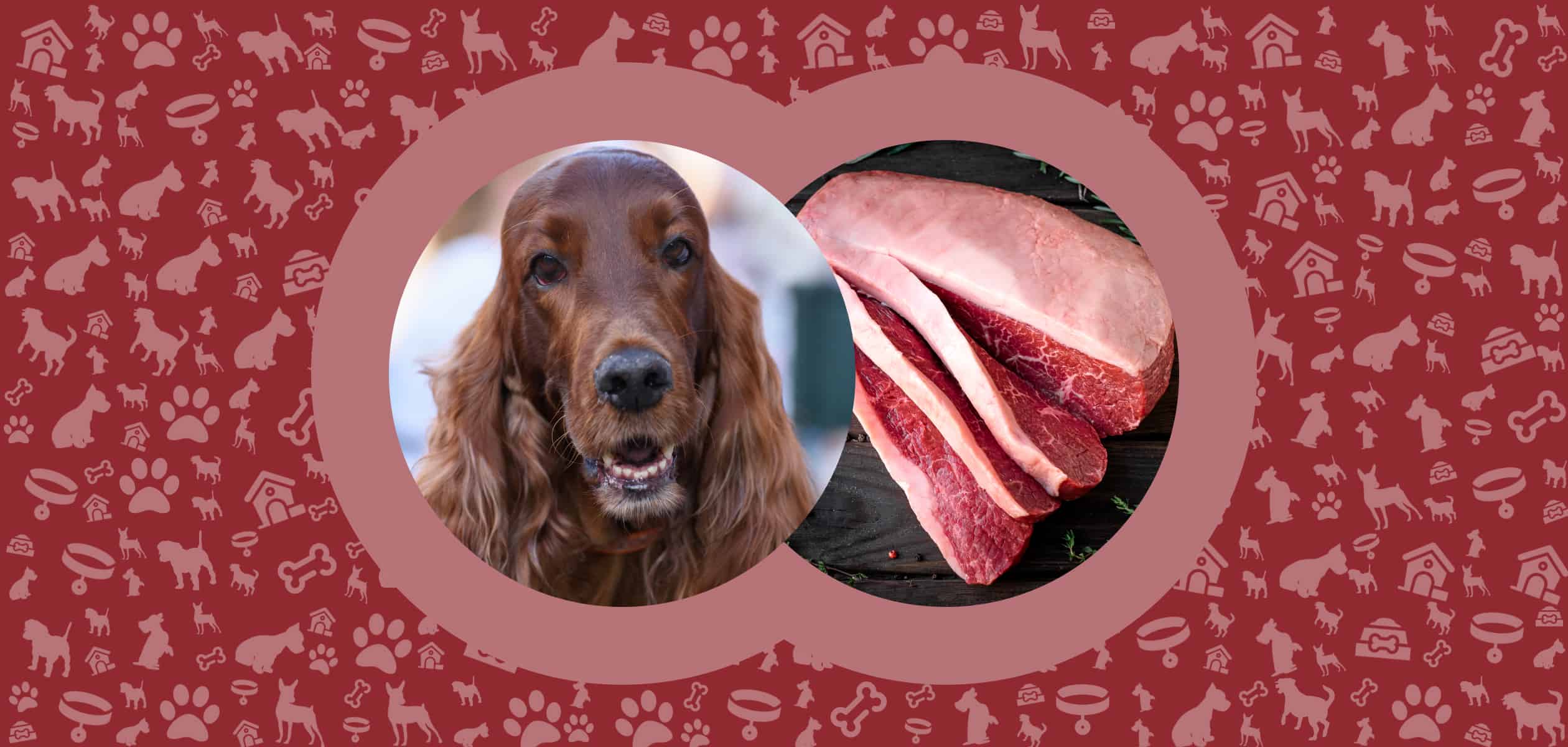
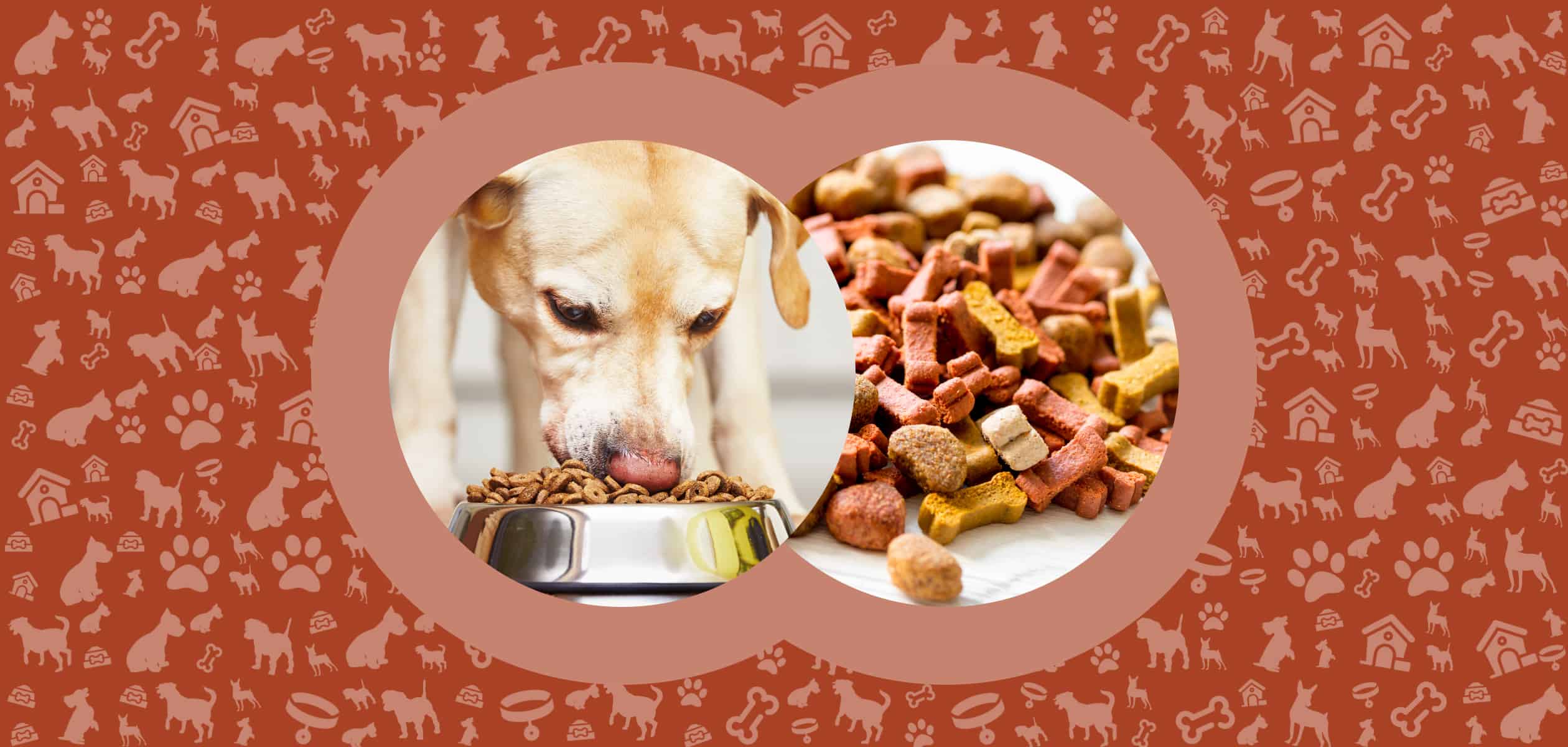
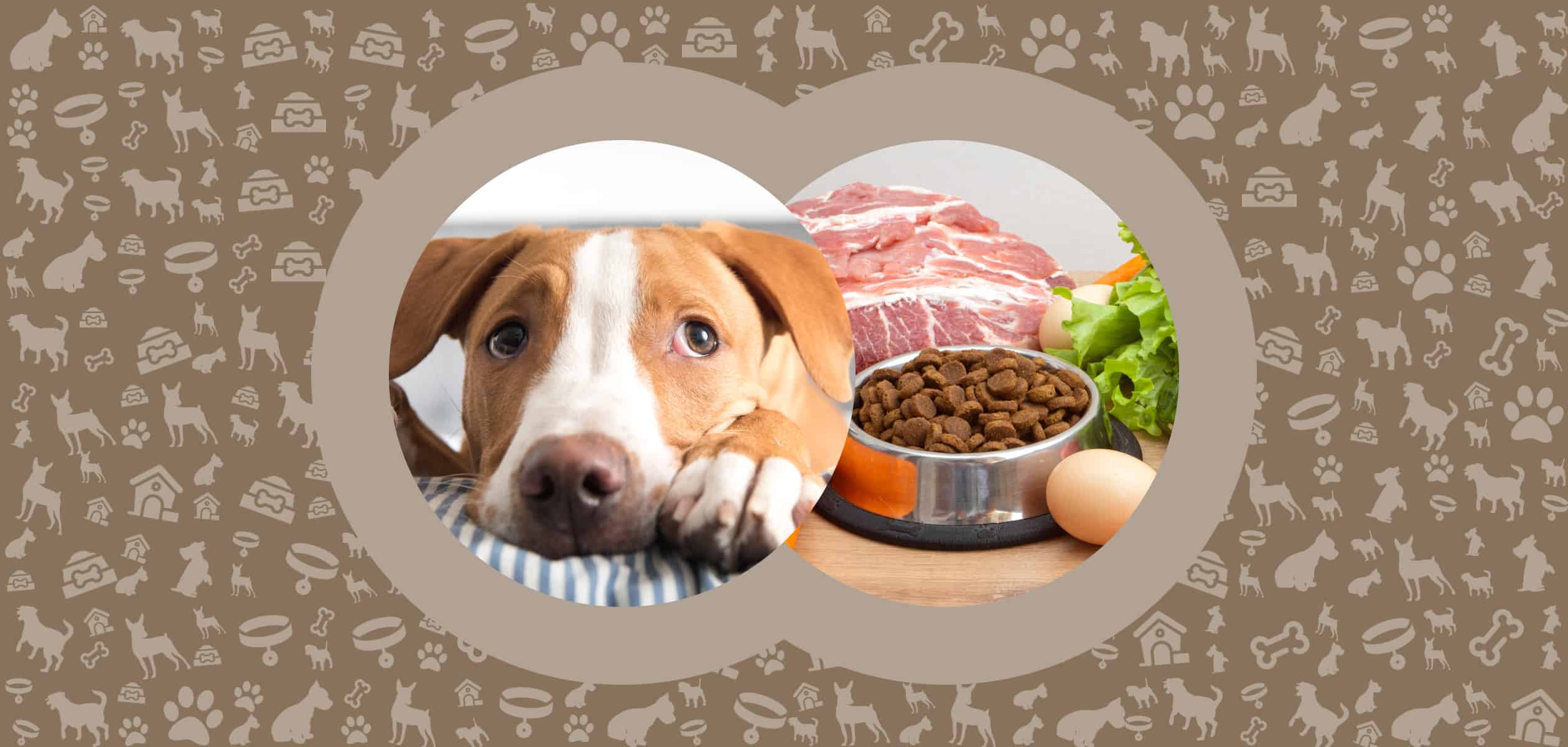
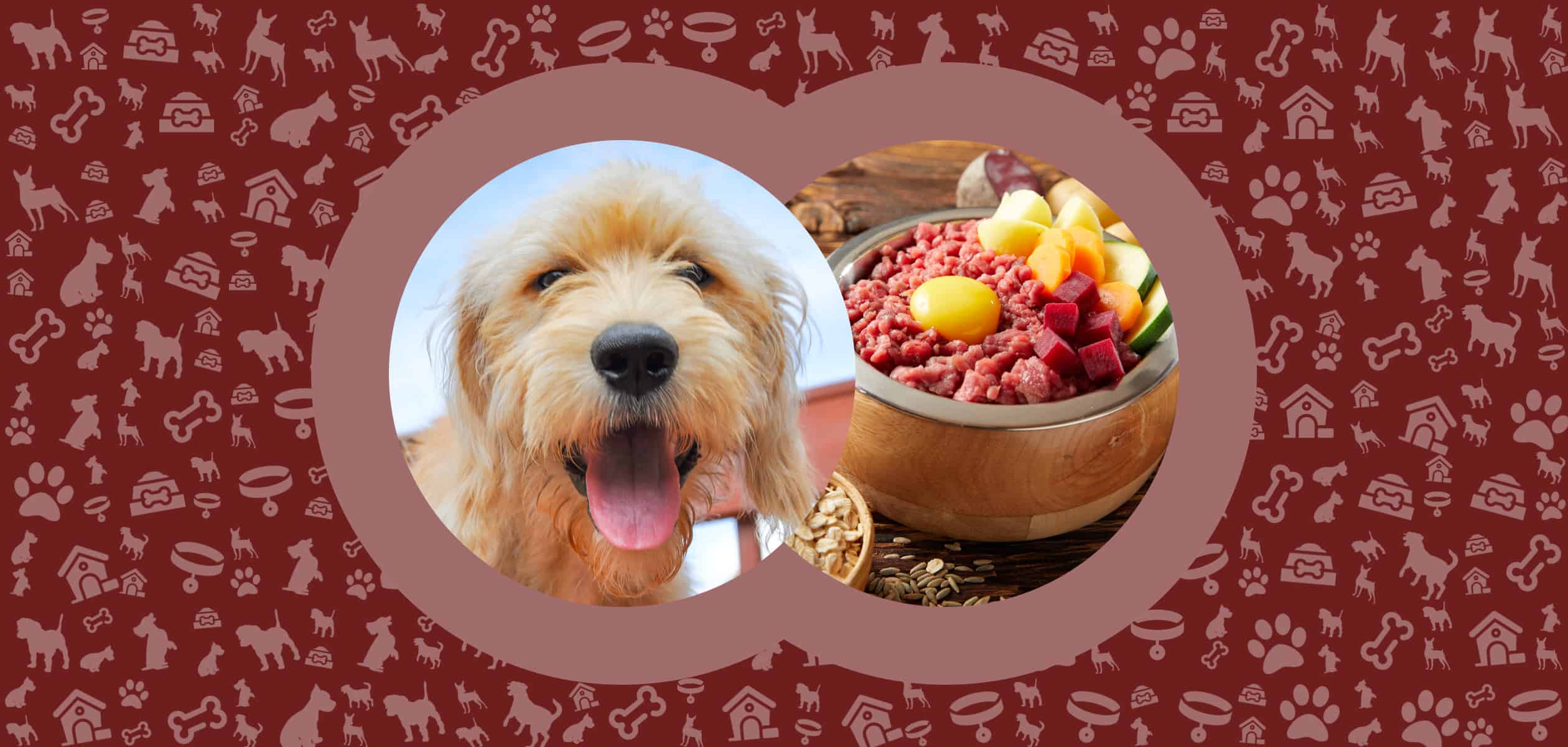
Leave a Comment